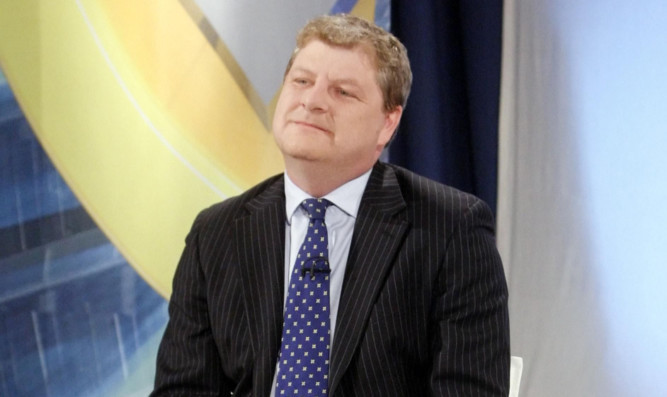In this week’s column I wanted to take the opportunity to say congratulations to the UK Government. Yes, you read it correctly: congratulations to the Westminster Government for showing they are serious, or at least want to be seen to be serious, about universal disarmament of nuclear weapons.
And serious about their international obligations as an upstanding charter member of the United Nations and one of five permanent members of the UN Security Council.
Let me explain. The Tory and Lib Dem Coalition Government tried to avoid (or just didn’t want to go to) this weekend’s third international conference on the humanitarian consequences of nuclear weapons, which will take place in Vienna.
Hosted by Austria, the conference aims to “strengthen the global nuclear disarmament and non-proliferation regime and to contribute to the growing momentum to firmly anchor the humanitarian imperative in all global efforts dealing with nuclear weapons and nuclear disarmament”.
Sounds pretty good to me.
The theory is, the more the international community discusses and understands the scale of the consequences and the risks involved, the clearer the case is and the stronger the sense of urgency becomes to get rid of nuclear weapons. It begs the question: why would the UK Government choose only to attend at the 11th hour?
Countries all over the world are attending. Even His Holiness Pope Francis has written a message for the opening of the event.
Given Scotland is home to the UK’s entire nuclear weapons submarine fleet, I’m quite relieved the UK Government has chosen to take up the invitation. Having a rather large set of nukes based next door to Scotland’s largest city, Glasgow, is quite a responsibility, albeit a morally bankrupt one in my book.
The Westminster Leader of the SNP, Angus Robertson MP, who is attending, had written to Foreign Secretary Phillip Hammond and asked questions in the House of Commons about why the UK was refusing to commit to participating in one of the only events of its kind.
Then on Tuesday we learned from the Foreign Office that the Westminster Government is now planning to join more than 100 other countries and organisations like the United Nations and the Red Cross who are attending.
So why the change of heart? If I told you it was because the US decided it was going, would you believe me? It’s actually one of the better examples of us following the USA’s lead.
Unfortunately, some details came to light recently that show the UK may be actually moving in the opposite direction from nuclear disarmament and going against the entire purpose of this weekend’s conference.
We have more than a year before the UK parliament is due to decide whether the nuclear weapons system should be renewed.
Yet we find out that the US defence giant, General Dynamics, has been contracted by the US Navy to make 12 launch tubes for a UK submarine (in the next decade) that could start to replace those currently on the Clyde.
This company will end up making a total of 48 missile tubes for four new UK nuclear submarines, according to the US Navy.
This decision has been taken before we’ve even decided how many submarines there should be, which won’t be until 2016, following next year’s general election.
Doing a deal to equip UK submarines with 12 missile launch tubes each is totally at odds with the 2010 Strategic Defence and Security Review, which stated there would be a reduction in the number of missiles and warheads that the replacement submarines would carry. Specifically, it said the number of missiles on each submarine will be reduced from 12 to eight.
Moving from eight to 12 sounds like expanding not reducing your nuclear armament to me.
Then, to top it all off, we learn from a parliamentary question answered by the Parliamentary Under-Secretary of State for Defence, that over £2bn has already been spent on Trident renewal and 36% of all long lead items the equipment you need to buy far in advance for successor submarines has been bought in the US. So much for Trident-related jobs in Scotland
But rumour has it that it wasn’t just the US that the UK was watching to make the first move in attending this conference. A keen eye is being kept on the nuclear-friendly French who are, at the time of writing, still not attending. Hence the major delay.
France is believed to hold about 300 nuclear warheads that can be deployed on aircraft and submarines. The nation spends several billion each year on nuclear arms operations. I’ve never quite understood the lack of national debate to reduce them, even if only for financial reasons when their debt stands at nearly 100% of GDP.
But let’s not worry about the French.
As the bumper sticker says on the back of my car: ‘Bairns not Bombs’.
It is wrong to spend £100bn on a new generation of Trident nuclear weapons when, right now, one million Scots including 220,000 of our children are living in poverty.
Nuclear disarmament is not only a moral necessity but a financial one, too. Let’s look ahead, not over the Channel, or across the Atlantic for that matter, to decide our future on matters of such humanitarian importance.
